- Home
- Fern Michaels
A Winter Wonderland Page 9
A Winter Wonderland Read online
Page 9
“I want free medical care for the next two weeks. If, and this is a very big if, you and I, well, if we are as good as we are right now . . .” She let her words trail off.
“Sweetie, you ain’t seen nothing yet. This is only the beginning,” Parker said before sliding in beside her.
“Something tells me this is going to be the merriest Christmas ever.” Angelica finally relaxed. Her trip had started out on a sour note, but something told her this was just the beginning.
“And you have your very own personal angel to watch over you,” Parker added, then kissed her.
Today was perfect, Angelica thought as she melted in his arms. Tomorrow would be even better.
The Joy of Christmas
HOLLY CHAMBERLIN
As always, for Stephen
And this time, also for Julia
ACKNOWLEDGMENTS
Many thanks are due to John Scognamiglio for once again giving me an opportunity to tell a story.
Thanks also to Heather Nichols, owner and muse of Stones & Stuff, for the warm and fuzzy mittens! And thanks to jewelry designer Kate Hebold for her inspiration!
This is in memory of Torch.
“How simple a thing it seems to me that to know ourselves as we are, we must know our mothers’ names.”
—ALICE WALKER
Chapter 1
“Aren’t you glad I told you to wear a hat that covers your ears?” Bess Wallis asked from the depths of her heavy wool coat and red and black plaid hunter’s cap.
Her friend, Iris Karr, from the depths of her own heavy wool, nodded. “Yeah, and I’m still freezing. I forgot just how cold you could get standing still.”
“You could stomp your feet.”
“I would,” Iris said, “if I could feel them.”
“Ha! Maybe now you’ll come over to the SmartWool set.”
“I’ll take it under consideration.”
It was Friday, the second of December. The two women had come to the annual lighting of the copper beech tree at the Portland Museum of Art. Everyone gathered in the small side yard outside the McLellan House had been given a slim white taper to hold against the early December darkness. The tapers were a nice idea, Iris thought, even though the little flames were snuffed out with even the tiniest movement of air. Relighting a taper from the flame of a neighbor’s taper brought people together. It united the crowd in the spirit of community and love that was Christmas.
“Bah humbug,” Iris muttered, then coughed to cover her words. Bess looked at her curiously, then turned away.
Iris’s lack of holiday spirit had nothing to do with spending a Friday evening at a museum, or even with the presence of the tightly packed crowd. She had loved museums from the time she was small and her mother had begun to take her on cultural excursions. She had so many wonderful memories of visits to museums in Massachusetts, Connecticut, and New York.
And then the excursions had stopped. Iris and her mother had never made it to the Art Institute of Chicago or the Smithsonian in D.C. or the J. Paul Getty Museum in Los Angeles.
Iris squeezed her eyes shut against the darker memories, a futile effort but one that had become habit.
No, the museum wasn’t the problem; the revelers weren’t the problem; even the ridiculous cold wasn’t the problem. Christmas was the problem. Christmas would always be the problem. Iris’s mother, Bonnie Karr, had died on Christmas Eve three years earlier, two months after Iris’s thirtieth birthday.
Not that Iris was sad. Not anymore. But still. The month of December definitely presented challenges the other eleven months did not, not even March, the month in which her mother had been born.
In short, December was the cruelest month. So as she had for the previous two years, Iris avoided the lighting of the giant pine tree in Monument Square right after Thanksgiving and had turned down a neighbor’s invitation to the old-fashioned Holiday Fair at the Cathedral Church of St. Luke on State Street. And she would stay home when Bess and a few of her friends joined the crowds for Merry Madness in about two weeks’ time, carrying glasses of wine from shop to shop, choosing locally made presents for a special few. No, Christmas and all the celebrations that led up to it were toxic for Iris. It hadn’t always been that way but it was now, and as far as Iris could see, it probably always would be. Going to the museum this evening with Bess had been a huge concession to her friend, one prompted partly by guilt. Bess gave an awful lot in their friendship. The least Iris could do was sing a few carols with her.
Iris drew her bulky wool coat more closely around her and buried her neck further into her fluffy scarf. Under her faux fur hat her hair was thick, dark, and naturally curled into loose waves. It was her mother’s hair, as her eyes were her mother’s eyes, large and deep brown. From her father, whose forebears had been English, she had inherited very white skin, the primary reason she avoided the beach in summer. She was average height and average weight. She dressed in gray, black, tan, and taupe, reserving bright color for accessories like scarves and bags. Though Iris designed and crafted jewelry, she wore very little jewelry herself. At the moment, the only piece she wore was a narrow gold bangle bracelet set with three demantoid garnets.
“Marilyn could have joined us,” Bess said, “if her new sous chef hadn’t called in sick. Half the waitstaff is out, too, with some dreadful bug.”
Iris made appropriate sounds of sympathy.
Bess, who taught poetry at the University of Southern Maine, was taller than Iris, and slimmer. She had recently celebrated her fifty-seventh birthday by treating herself and her partner to a few days in Paris. Her hair, once brown, hung down to her waist in a silver cascade, which made a striking contrast to her vivid blue eyes. At the moment she was wearing a heavy, Black Watch plaid wool skirt that came almost to her ankles, tights, black knee high boots, and under her coat, a cream-colored wool sweater she had bought on a long ago trip to Ireland. The large, antique gold and opal ring she always wore on her left hand, once her great-grandmother’s, was hidden from sight by one of a pair of chunky knit mittens. Bess considered the ring a talisman of sorts, a good luck charm, though she hadn’t shared with Iris just what specific good luck the ring tended to bring.
A tiny old man to Iris’s right stumbled over the rough ground and jostled her as he tried to regain his footing. She stepped a bit to the left to allow him room to pass. Her altered position gave her a partially new perspective of those gathered across the yard. Iris blinked. The cold had been known to make her eyes water and sting. It had been known to blur her vision. She blinked again.
But there was no mistake. It was Ben.
Iris heard her own sharp intake of breath.
“Are you okay?” Bess asked.
“Yeah,” Iris lied, faking a smile. She suspected it appeared more as a grimace. “Just a shiver.”
“A loud one.”
“Sorry.”
“Oh, good,” Bess said, pointing to the chorus gathering on the steps of the building. “The singing’s about to start.”
The local choral group that had been hired to perform began a program of traditional songs. The crowd sang along to “Deck the Halls” and “Jingle Bells,” booming baritones and thin sopranos, the old and the young, the talented and the tone deaf. Iris, however, was too stunned even to mouth the words. Let her neighbors think her a party pooper. She just couldn’t care.
Iris bent her knees a bit, hoping to shrink to a point below notice. She couldn’t be sure he had seen her. Ben Tresch. They hadn’t made eye contact, of that she was certain, but maybe when she had so suddenly stepped to the side something of her movement had caught his attention. Maybe. She didn’t want to stick around to find out.
But how to orchestrate an escape? She could tell Bess the cold was too fierce for her to tolerate and force her way through the tightly packed crowd, back into the museum and out the doors on Free Street. From there it was a brisk ten-minute walk back to her home on Neal Street. She would be safe there. Home was her haven, her sanctuary.
/> Iris sighed. Home would have to wait. She had promised to accompany Bess to the lighting and it would be rude to abandon her, especially for a lie. Her knees were aching now and Iris stood to her full height. It had been a ridiculous idea, anyway, attempting to hide in plain sight.
Beside her Bess’s clear contralto voice rang out in the cold air. But Iris couldn’t trust herself to open her mouth in a semblance of singing, and not only because she was still stunned at seeing her former love across the crowd, the man she had been poised to marry. Now the familiar music had worked its way into her heart, too. This is why I hate Christmas celebrations, she thought. I don’t want to cry ever again and Christmas is all about crying. There were the sentimental songs and the cheesy television commercials where everyone was smiling and laughing and getting diamond engagement rings and charm bracelets.
And then there were the funerals. It was all—horrible.
After what seemed to Iris like an interminable amount of time the chorus ended their performance with a rendition of “Silent Night,” and with fanfare, the sprawling, majestic copper beech tree came to sparkling life amid cheers and applause.
“Come on, let’s get out of here,” Iris said before the applause had entirely died down, grabbing Bess’s arm.
“ ‘But now, beyond the things of sense,
Beyond occasions and events,
I know, through God’s exceeding grace,
Release from form and time and space.’ ”
“Who is that?” Iris asked, not really interested in the answer.
“It’s John Greenleaf Whittier, from his poem ‘The Mystic’s Christmas.’ So, you didn’t enjoy this occasion just a little bit?”
“The chorus was lovely,” Iris admitted as they moved toward the museum. “But I don’t want to get stuck behind the crowd.”
“You’ve got an important appointment to get to? Maybe even a hot date?”
Iris didn’t answer.
Together they made their way back inside the museum, past the Gillian Rotunda, through the gift shop, past the information desk and the great hall, and finally out again into the clear, cold December darkness.
Once on the sidewalk, Iris felt the tension in her body begin to drain away. She would make her escape now and—
“Iris!”
The tension, all of it, was back. Stiffly, Iris turned to face the past in the form of Ben Tresch.
He was a very handsome man by almost anyone’s standards, tall and broad-shouldered and slim. His features were strong but also fine and his hair, once bright blond, had mellowed to a warm gold. His eyes were very blue.
“What are you doing here?” she blurted. Portland was her city now, not his.
“Hello to you, too,” he replied. “I’ve taken the job of curator of a new department at the museum. I started just yesterday.”
“Oh,” Iris said feebly. “Congratulations.”
“Thanks,” Ben said, a wry twist to his lips. He extended his hand to Bess. “I’m Ben Tresch.”
“Bess Wallis. Nice to meet you.”
Iris shook her head. “I’m sorry. I should have . . .”
There was an awkward moment when none of the three seemed to know what else to say. Iris could feel Bess’s eyes on her and looked down to her chunky winter boots.
“Well,” Ben said into the big silence, “I should get back inside. I have a meeting. You know how it is when you start a new job.”
Iris remained silent, though she did look up from her boots. Bess said, her voice pitched to make up for her friend’s rudeness, “It was very good meeting you, Ben. I hope the job is all you want it to be.”
Ben thanked her and with a look at Iris that Bess couldn’t quite interpret, he turned and ran lightly up the museum’s few front steps.
Iris, finding that she couldn’t bear to watch him go off, had turned away from the building and was pretending to find something very interesting in the December sky.
“So, who was that?” Bess asked when Ben was out of earshot. “Why do you look as if you’ve seen a ghost?”
“Because I have,” Iris mumbled.
“Oh. Do you want to come over for some hot cider? Marilyn’s got a new recipe. It’s amazing. It’ll grow hair on your chest if that’s your sort of thing.”
Iris looked away from the sky and attempted a smile. “No, thanks,” she said. “I think I’ll just head home.”
Bess shrugged. “Suit yourself. And, Iris? A word of advice?”
“Yeah?” Iris said warily.
“SmartWool.”
Chapter 2
It was Saturday evening, December third, and Iris was at her home on Neal Street. She had bought the condo not long after moving to Portland a little less than three months after her mother’s passing. It was on the third floor of an enormous house that had been built in the nineteenth century for one extended family. The building had charm to spare, as did most of the homes in the West End.
Iris had taken to the neighborhood immediately. The architecture of its private homes appealed to her sense of history and whimsy. The majority of them were massive, rambling structures, built in either brick or stone. Many featured enormous wraparound porches, fanciful turrets, and especially on the homes overlooking the water on the Western Promenade, widow’s walks. Most homes had beautifully tended gardens, either walled or open, and lots of the streets spent a good deal of the day in shade because of the massive pines and sprawling oaks.
This evening Iris found herself staring out her living room window at the house across the street. On its front door was hung a big bunch of pine boughs tied together with bright red velvet ribbon. If Iris enjoyed the Christmas season, she would have found the West End at this time of the year a bit of heaven on earth. Almost every house displayed an elaborately decorated Christmas tree in the window of its front room, a pretty enough sight to make even the grinchiest of people smile.
Iris turned irritably from the window. It wasn’t even seven thirty but she contemplated the idea of going to bed. What was the point of staying up when she felt at a loss as to what to do with the rest of the evening?
The whole day had been the same. She had spent the majority of it at work in her studio but every few moments her thoughts had turned to Ben Tresch. It seemed impossible but she had forgotten just how blue his eyes were and just how they seemed to see far more of you than you had decided to show.
Iris brushed her hand across her face, as if chasing away the memories, and picked up a large, smooth chunk of charoite sitting on a tall, narrow stand in the front hall. She loved its marbled purple and white appearance. The stone was heavy and dense, yet she had the sensation that her fingers were ever so slightly making indentations in its surface. Holding the stone gave her a feeling of sensual satisfaction. It helped calm her.
After a moment she carefully returned the stone to its home. She really didn’t know why she had been so surprised at Ben’s appearance the night before. Portland and Boston were at best two hours apart. It wasn’t inconceivable that she and Ben might run into each other, especially at a museum or gallery. They were both in the art world, which could be notoriously small, even incestuous. The real surprise was that their paths hadn’t crossed before now.
Still, seeing Ben across the crowd and then face-to-face outside the museum had shocked Iris and rattled the still-fragile construct she had made of her life since moving so abruptly to Maine from her hometown of Wakefield, Massachusetts. For better or worse, Ben Tresch was too intimately associated in Iris’s heart with her mother and the world Iris had purposely, even ruthlessly, left behind.
Iris went into the living room and over to the elaborately framed antique mirror hung above the maroon velvet couch. She saw there what she saw each time she looked, the undeniably strong resemblance to her mother. Still, even in the depths of Bonnie’s illness, Iris never saw the look of defeat in her mother’s eyes that she saw in her own at that moment. Well, maybe it had been there and she just hadn’t wanted to see it. I
ris turned away from the mirror.
Bonnie Karr had been a well-regarded sculptor who worked mostly in stone and then, later in her life, largely in wood. Eventually, a full eighteen months before her death from a recurring cancer, Bonnie had been forced to give up her work entirely. That was only one instance of how the disease had been unkind to her. It had gradually but sometimes in brutally large steps robbed her of all the little joys in her life, and then, finally, of the biggest joy—life itself. Bonnie Karr had passed away at the age of fifty-six, leaving behind a devoted and grieving husband and a loving and emotionally defeated daughter.
Iris drifted across the living room to a basket of small stones sitting on a long, low credenza. Some of the stones she had bought. Others she had found and some she had been given. She had so many stones now, there were literally hundreds around the apartment, but she would never forget buying her very first one.
She had been about five years old, vacationing with her parents on Cape Cod. One afternoon her father had taken her shopping. She remembered being overwhelmed by the endless shelves of what she later realized were cheap and tacky souvenirs—kitchen magnets, T-shirts with dubiously funny slogans splashed across the front, wind-up plastic lobsters. She had two whole dollars of her own to spend but nothing interested her and she remembered feeling pretty grumpy as she and her father made to leave the store. But then a jumble of polished rocks on the checkout counter caught her eye. Without hesitation she had snatched up a chunk of rose quartz as her prize.
Iris still had the stone; it was something she would never willingly part with because she believed it had signaled the birth of her creative life. Something inside her had responded to it. Something inside her had known she wanted to work with the materials of the earth, just as her mother did.
With a dramatic sigh Iris walked back across the room and sank onto the couch. Her mother’s illnesses had dominated Iris’s life for close to twenty years. Even now, three years after her mother’s passing, Iris remembered as if they had happened yesterday the landmark events her mother had missed out on. The sixth-grade holiday play in which Iris had had a speaking role as the Snow Queen. Iris’s graduation from high school, at which she had been presented an award for top honors in art. Her graduation from college and the opening of her first studio in Boston’s SOWA district a few years later.

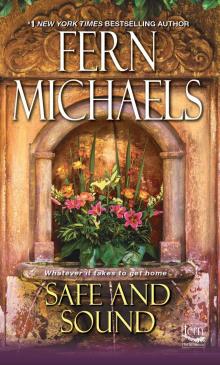 Safe and Sound
Safe and Sound Santa Cruise
Santa Cruise Deep Harbor
Deep Harbor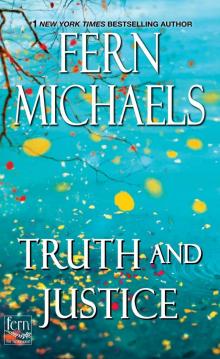 Truth and Justice
Truth and Justice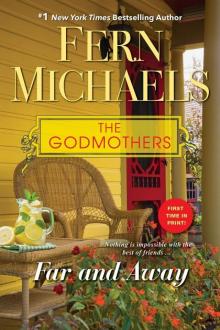 Far and Away
Far and Away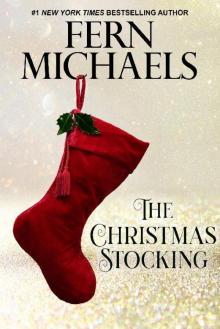 The Christmas Stocking
The Christmas Stocking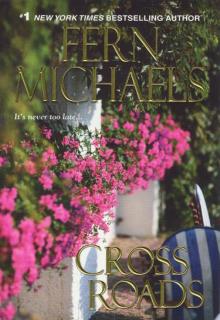 18. Cross Roads
18. Cross Roads Texas Sunrise
Texas Sunrise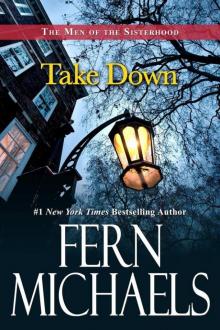 Take Down (The Men of the Sisterhood)
Take Down (The Men of the Sisterhood) Sleigh Bells
Sleigh Bells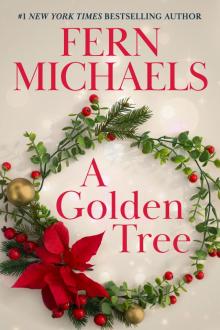 A Golden Tree
A Golden Tree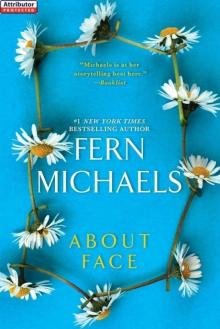 About Face
About Face To Taste The Wine
To Taste The Wine Texas Rich
Texas Rich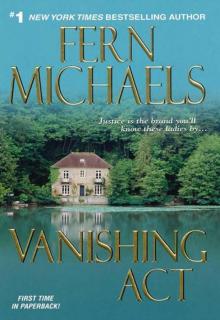 15. Vanishing Act
15. Vanishing Act To Have and to Hold
To Have and to Hold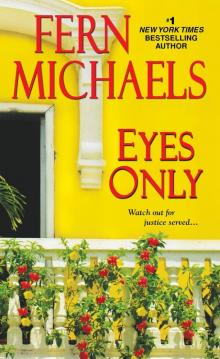 Eyes Only
Eyes Only Fearless
Fearless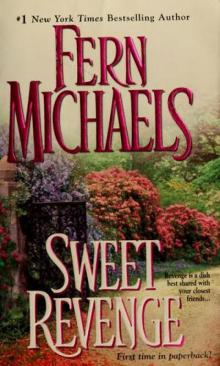 5. Sweet Revenge
5. Sweet Revenge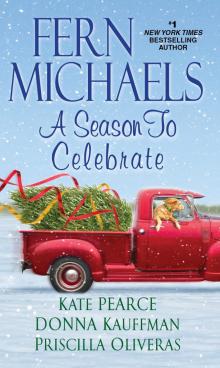 A Season to Celebrate
A Season to Celebrate Cut and Run
Cut and Run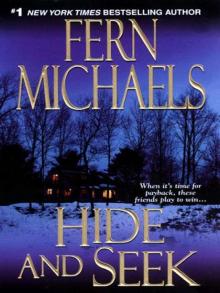 8. Hide and Seek
8. Hide and Seek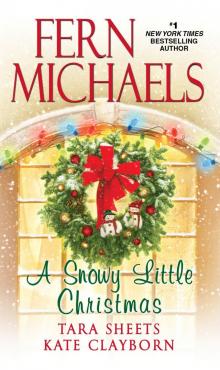 A Snowy Little Christmas
A Snowy Little Christmas Hidden
Hidden Sins of the Flesh
Sins of the Flesh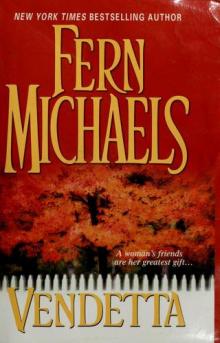 3. Vendetta
3. Vendetta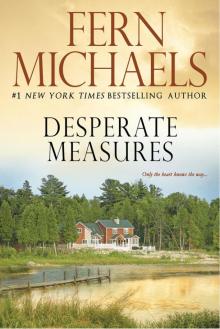 Desperate Measures
Desperate Measures No Way Out
No Way Out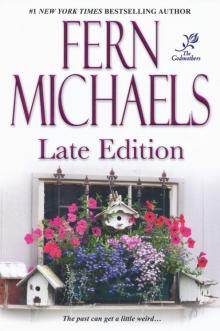 Late Edition
Late Edition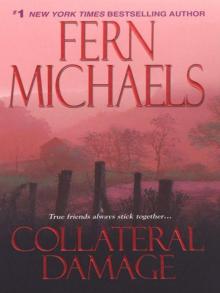 11. Collateral Damage
11. Collateral Damage Texas Heat
Texas Heat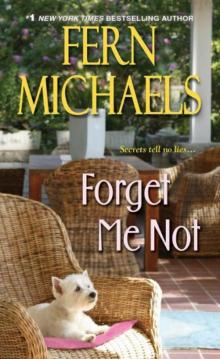 Forget Me Not
Forget Me Not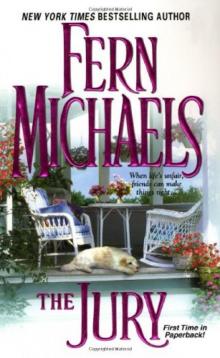 4. The Jury
4. The Jury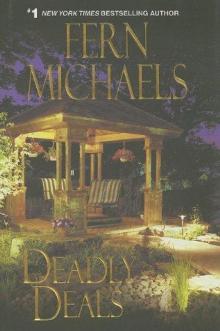 16. Deadly Deals
16. Deadly Deals Plain Jane
Plain Jane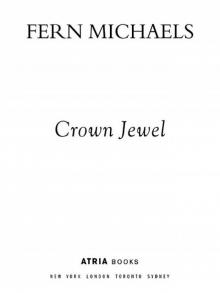 Crown Jewel
Crown Jewel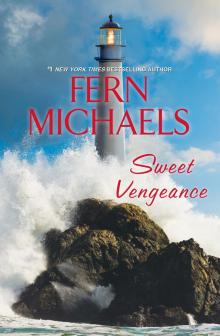 Sweet Vengeance
Sweet Vengeance 19. Deja Vu
19. Deja Vu Point Blank
Point Blank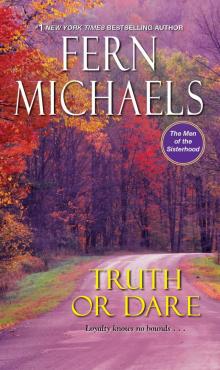 Truth or Dare
Truth or Dare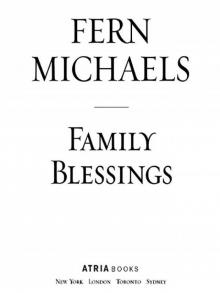 Family Blessings (Cisco Family)
Family Blessings (Cisco Family)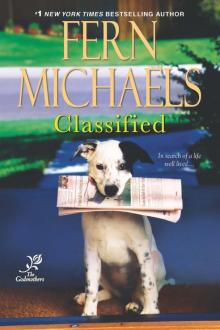 Classified
Classified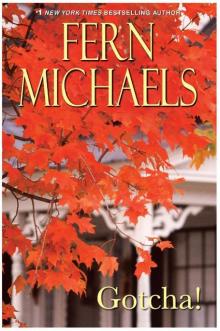 The Blossom Sisters
The Blossom Sisters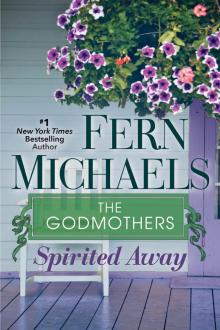 Spirited Away
Spirited Away Wishes for Christmas
Wishes for Christmas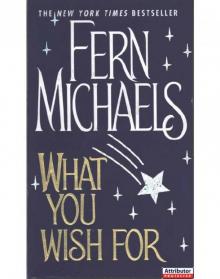 What You Wish For
What You Wish For Fancy Dancer
Fancy Dancer 14. Razor Sharp
14. Razor Sharp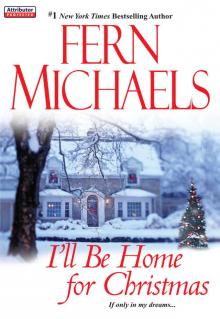 I'll Be Home for Christmas
I'll Be Home for Christmas Vegas Sunrise
Vegas Sunrise Trading Places
Trading Places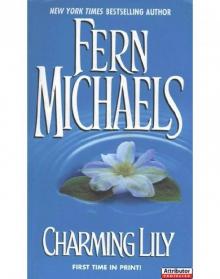 Charming Lily
Charming Lily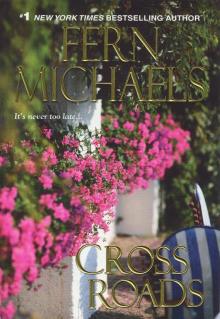 Cross Roads
Cross Roads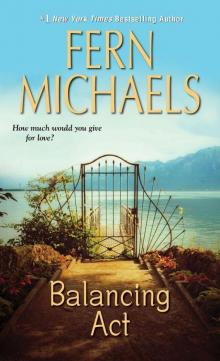 Balancing Act
Balancing Act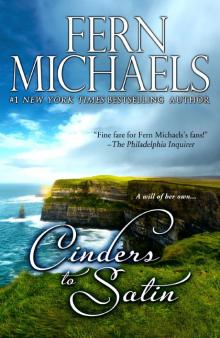 Cinders to Satin
Cinders to Satin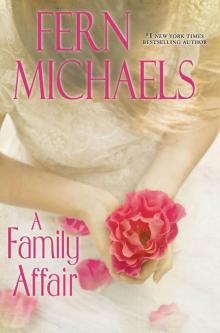 A Family Affair
A Family Affair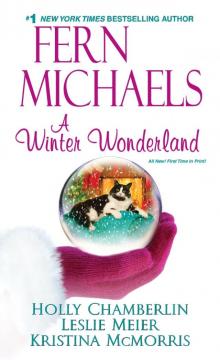 A Winter Wonderland
A Winter Wonderland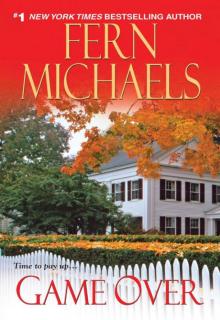 17. Game Over
17. Game Over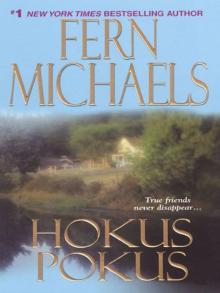 Hokus Pokus (The Sisterhood: Rules of the Game, Book 2)
Hokus Pokus (The Sisterhood: Rules of the Game, Book 2)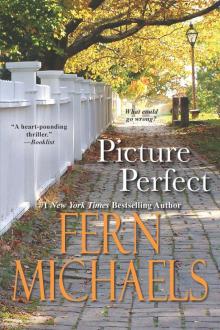 Picture Perfect
Picture Perfect Dear Emily
Dear Emily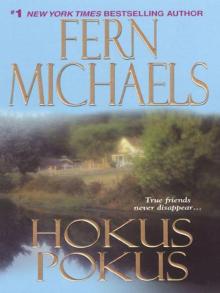 9. Hokus Pokus
9. Hokus Pokus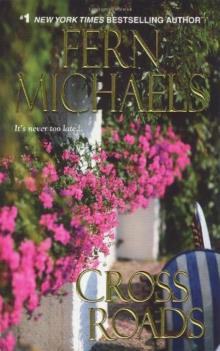 Cross Roads - Sisterhood book 18
Cross Roads - Sisterhood book 18 Blindsided
Blindsided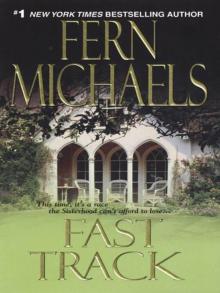 Fast Track
Fast Track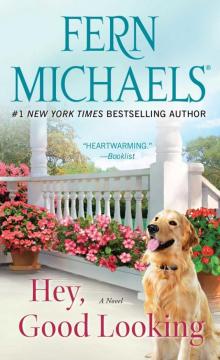 Hey, Good Looking
Hey, Good Looking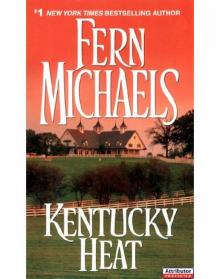 Kentucky Heat
Kentucky Heat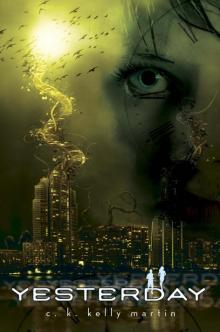 Yesterday
Yesterday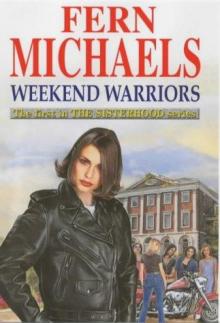 Weekend Warriors
Weekend Warriors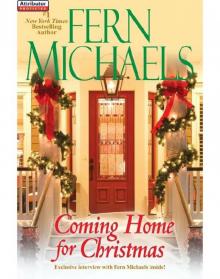 Coming Home for Christmas
Coming Home for Christmas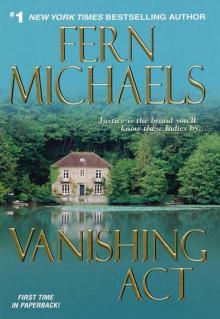 Vanishing Act
Vanishing Act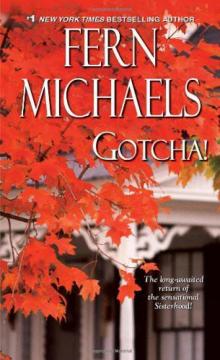 Gotcha!
Gotcha! Home Free
Home Free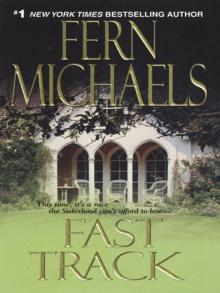 Fast Track (The Sisterhood: Rules of the Game, Book 3)
Fast Track (The Sisterhood: Rules of the Game, Book 3)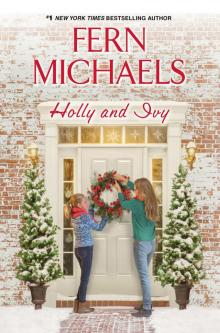 Holly and Ivy
Holly and Ivy Fool Me Once
Fool Me Once The Most Wonderful Time
The Most Wonderful Time Exclusive
Exclusive Jingle All the Way
Jingle All the Way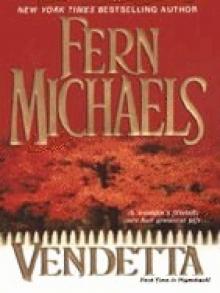 Vendetta
Vendetta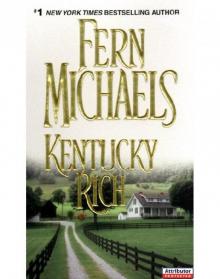 Kentucky Rich
Kentucky Rich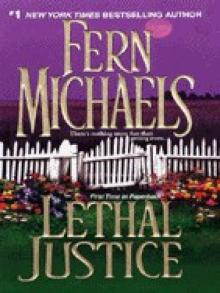 Lethal Justice
Lethal Justice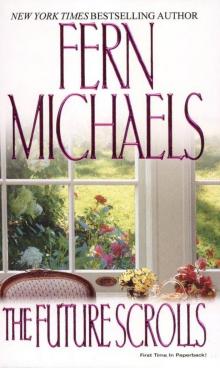 The Future Scrolls
The Future Scrolls Deja Vu
Deja Vu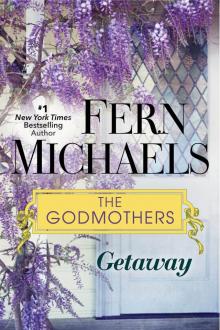 Getaway
Getaway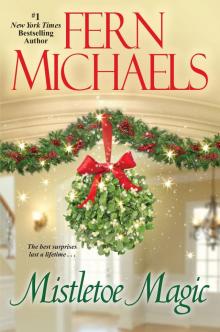 Mistletoe Magic
Mistletoe Magic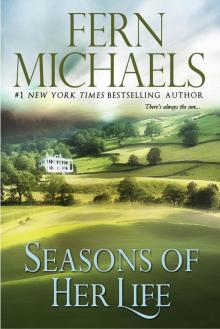 Seasons of Her Life
Seasons of Her Life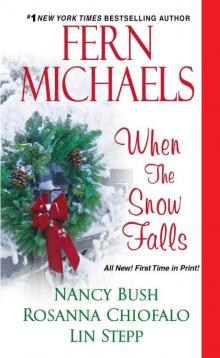 When the Snow Falls
When the Snow Falls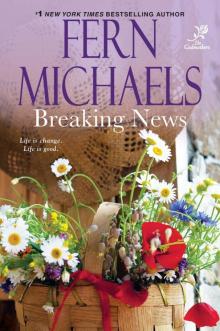 Breaking News
Breaking News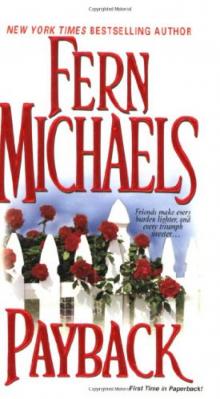 2. Payback
2. Payback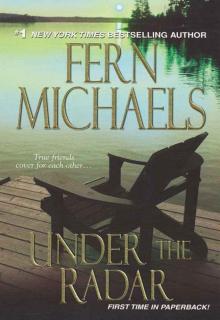 Under the Radar
Under the Radar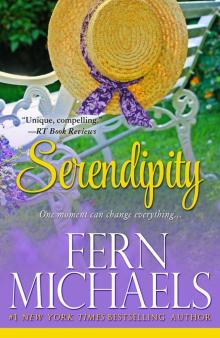 Serendipity
Serendipity High Stakes
High Stakes Need to Know
Need to Know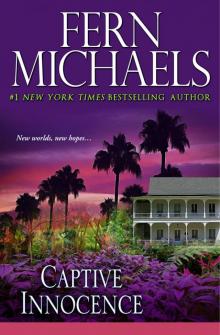 Captive Innocence
Captive Innocence Countdown
Countdown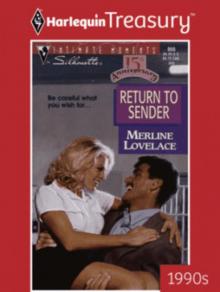 Return to Sender
Return to Sender Fast and Loose
Fast and Loose Sara's Song
Sara's Song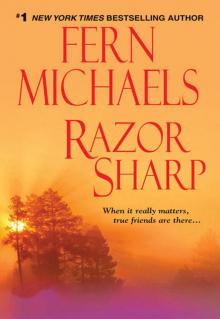 Razor Sharp
Razor Sharp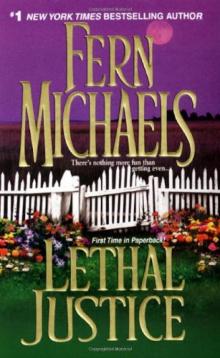 6. Lethal Justice
6. Lethal Justice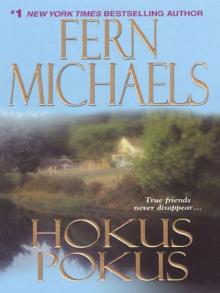 Hokus Pokus
Hokus Pokus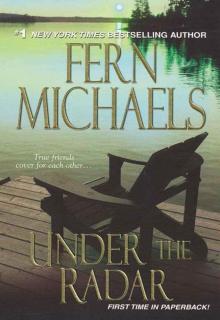 13. Under the Radar
13. Under the Radar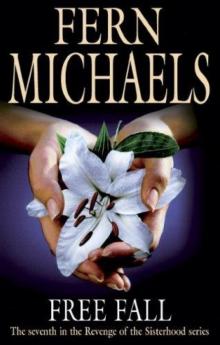 7. Free Fall
7. Free Fall Collateral Damage
Collateral Damage Whitefire
Whitefire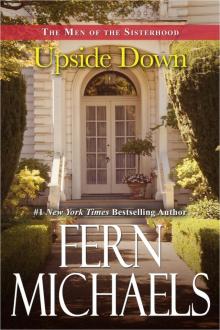 Upside Down
Upside Down Southern Comfort
Southern Comfort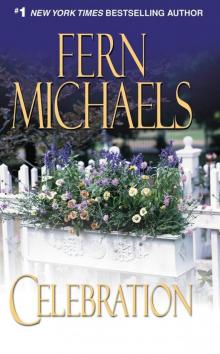 Celebration
Celebration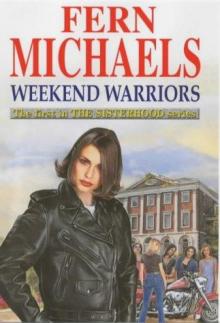 1. Weekend Warriors
1. Weekend Warriors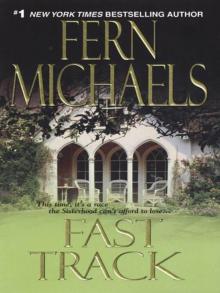 10. Fast Track
10. Fast Track Making Spirits Bright
Making Spirits Bright Silver Bells
Silver Bells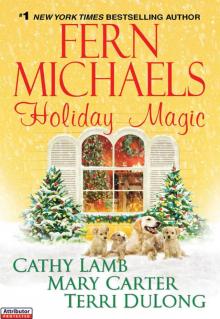 Holiday Magic
Holiday Magic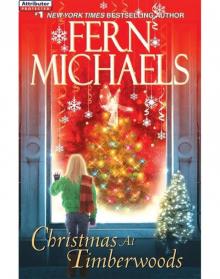 Christmas At Timberwoods
Christmas At Timberwoods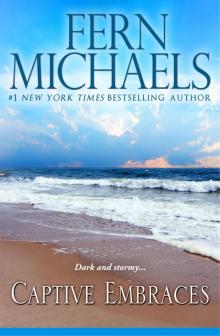 Captive Embraces
Captive Embraces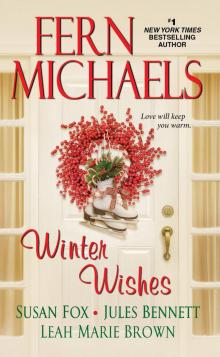 Winter Wishes
Winter Wishes Listen To Your Heart
Listen To Your Heart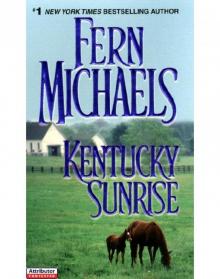 Kentucky Sunrise
Kentucky Sunrise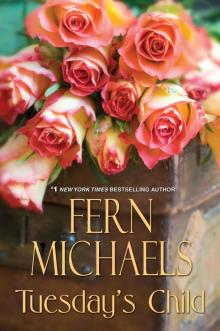 Tuesday's Child
Tuesday's Child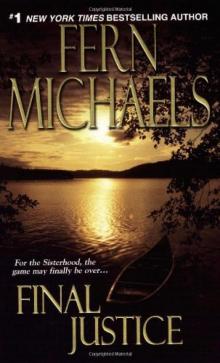 Final Justice
Final Justice Free Fall
Free Fall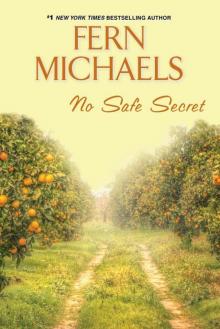 No Safe Secret
No Safe Secret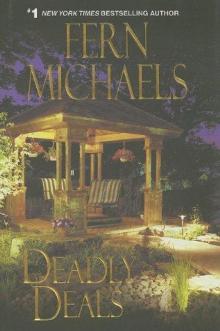 Deadly Deals
Deadly Deals Wish List
Wish List Pretty Woman
Pretty Woman Payback
Payback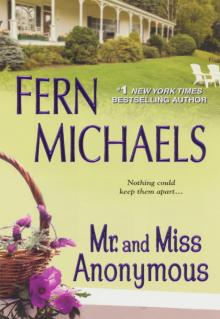 Mr. And Miss Anonymous
Mr. And Miss Anonymous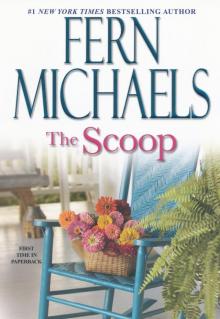 The Scoop
The Scoop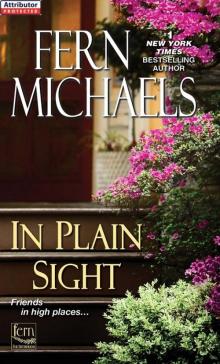 In Plain Sight
In Plain Sight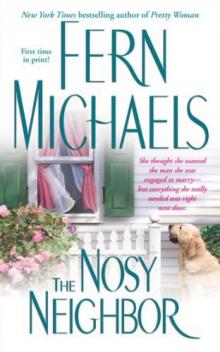 The Nosy Neighbor
The Nosy Neighbor Final Justice: Sisterhood Series #5
Final Justice: Sisterhood Series #5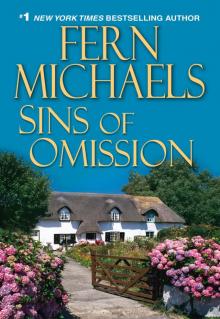 Sins of Omission
Sins of Omission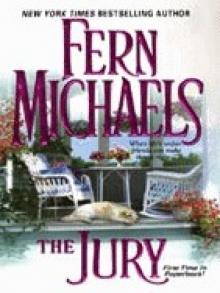 The Jury
The Jury Captive Secrets
Captive Secrets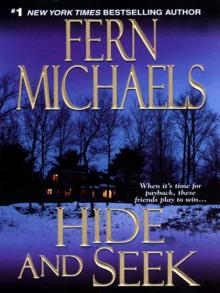 Hide and Seek (The Sisterhood: Rules of the Game, Book 1)
Hide and Seek (The Sisterhood: Rules of the Game, Book 1)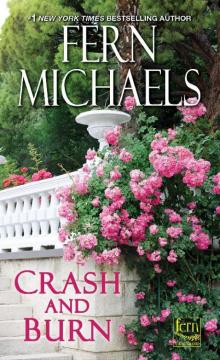 Crash And Burn
Crash And Burn Sweet Revenge
Sweet Revenge Secret Santa
Secret Santa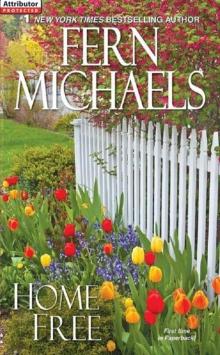 20. Home Free
20. Home Free Game Over
Game Over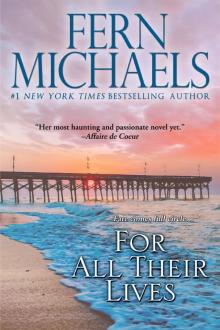 For All Their Lives
For All Their Lives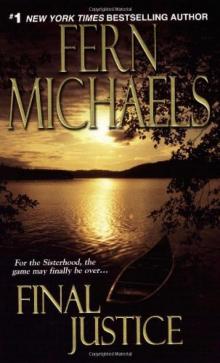 12. Final Justice
12. Final Justice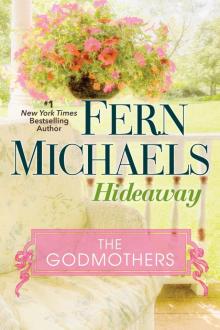 Hideaway
Hideaway Perfect Match
Perfect Match